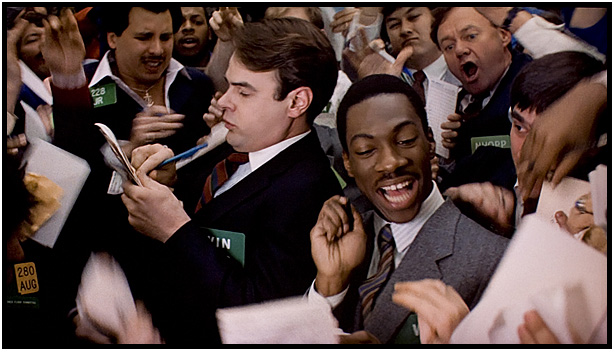 |
| Matt Taibbi |
Rolling Stone's Matt Taibbi
says no. Here's some background on the excerpt below: The Libor scandal -- which resulted in hundreds of millions of dollars in fines for some of the biggest banks in the world -- was a situation in which banks submitted false data to set an interest-rate benchmark low or high in order to profit from trades. This is illegal, but that's okay. It would be
just too hard to jail our bankers so, bygones! Now there's another fix that may be in with setting the ISDAfix (no irony there, "fix" is in the name of the process), in which the rates for interest-rate swaps are determined. Add that to the Libor fix and, sez Taibbi, you get this:
Why? Because Libor already affects the prices of interest-rate swaps,
making this a manipulation-on-manipulation situation. If the
allegations prove to be right, that will mean that swap customers have
been paying for two different layers of price-fixing corruption. If you
can imagine paying 20 bucks for a crappy PB&J because some evil
cabal of agribusiness companies colluded to fix the prices of both
peanuts and peanut butter, you come close to grasping the lunacy of
financial markets where both interest rates and interest-rate swaps are
being manipulated at the same time, often by the same banks.
"It's a double conspiracy," says an amazed Michael Greenberger, a
former director of the trading and markets division at the Commodity
Futures Trading Commission and now a professor at the University of
Maryland. "It's the height of criminality."
The bad news didn't stop with swaps and interest rates. In March, it
also came out that two regulators – the CFTC here in the U.S. and the
Madrid-based International Organization of Securities Commissions – were
spurred by the Libor revelations to investigate the possibility of
collusive manipulation of gold and silver prices. "Given the clubby
manipulation efforts we saw in Libor benchmarks, I assume other
benchmarks – many other benchmarks – are legit areas of inquiry," CFTC
Commissioner Bart Chilton said.
But the biggest shock came out of a federal courtroom at the end of
March – though if you follow these matters closely, it may not have been
so shocking at all – when a landmark class-action civil lawsuit against
the banks for Libor-related offenses was dismissed. In that case, a
federal judge accepted the banker-defendants' incredible argument: If
cities and towns and other investors lost money because of Libor
manipulation, that was their own fault for ever thinking the banks were
competing in the first place.
As far as I can figure out, the judge dismissed the case because it's not the bank's fault that their clients didn't understand that the banks were colluding, not competing. So you can't sue the banks for anti-competitive practices!
Sheesh. We're so screwed. Anyway, read the whole
Taibbi piece, then slit your wrists, or, in the alternative, go into investment banking and get your piece of the action.
 |
| Remind me why I have a conscience... |



It is so depressing to think that THEY have won again and appear to always win. Who are THEY? The special interests, the moneyed folks who write the rules, who buy the politicians, who buy up the media so as to misinform the people and divide us, to distract us with nonsense while they go about corrupting all systems. How do we fight them? With people like you Matt, thank you, keep up the good fight. If you start a movement, I will join up.
ReplyDelete